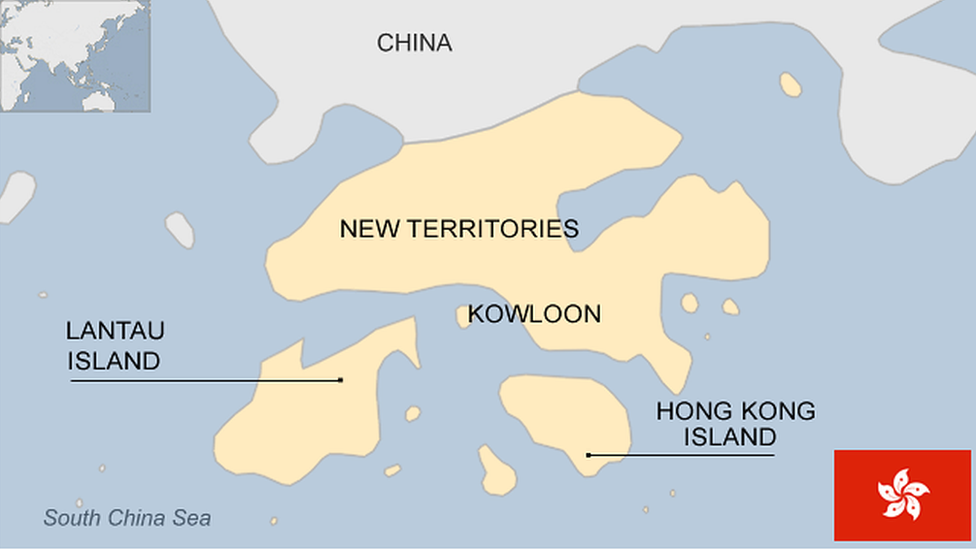Hong Kong-China train station could apply mainland law
- Published
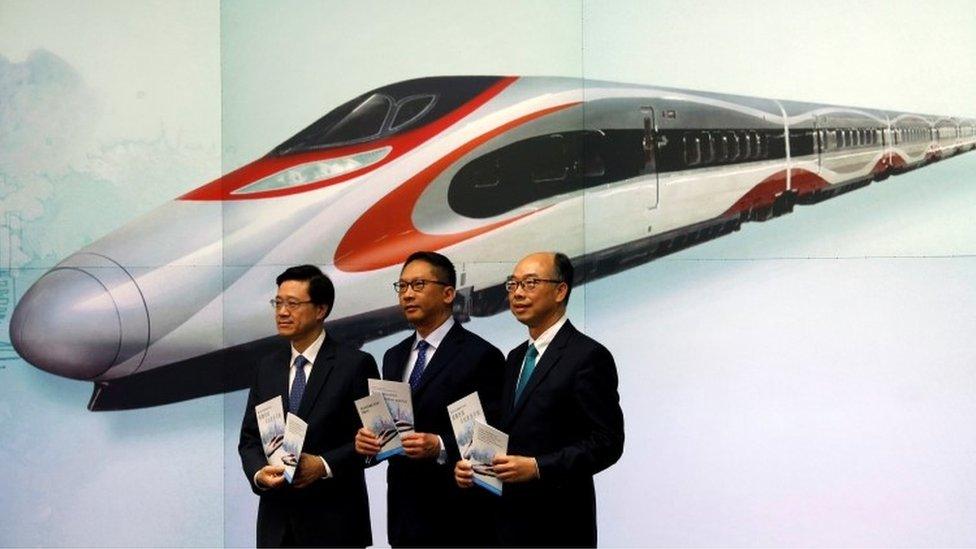
The project is part of major plans to better link Hong Kong with the mainland rail network
Hong Kong's government has unveiled a controversial plan which would allow Chinese mainland law to apply in the territory for the first time.
It's part of attempts to streamline operations at the new Guangzhou-Shenzhen-Hong Kong Express Rail Link, which will open next year, costing just under HK$84.42bn ($10.8bn; £8.3bn).
Under the new plan, passengers will be able to undertake border clearance procedures for both Hong Kong and China successively in one building in West Kowloon, Hong Kong.
And it will be mainland law which will be in force in parts of the terminal, even though it's on Hong Kong soil.
The government says that will be more convenient for passengers, but opponents say it could violate Hong Kong law.
How do people normally move from Hong Kong to the mainland?
For those travelling overland, the process is similar to most border crossings between countries.
At the busiest land crossings, passengers must first clear immigration and customs in one physical jurisdiction, then walk or be driven a fair distance to clear immigration in the other jurisdiction.
Hong Kong immigration procedures are handled on undisputed Hong Kong territory, and Chinese immigration procedures are handled in Shenzhen, which is the mainland.
So what will be different about this one?
Hong Kong officials are touting this as a "one-stop" clearance.
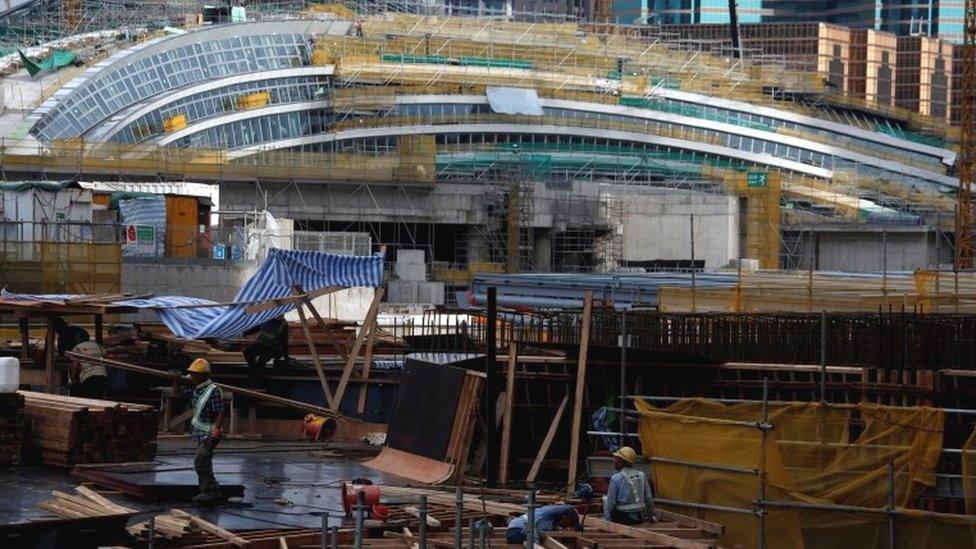
The station at West Kowloon is still being built
Passengers will be able to complete both Hong Kong and Chinese clearance procedures under one roof inside the West Kowloon terminus building, before boarding trains to all cities on the national high-speed railway network.
Hong Kong officials say this will be like similar arrangements between for example the US and Canada, and the UK and France on the Eurostar.
How will the process work?
China will lease the so-called "Mainland Port Area" from Hong Kong. The area will comprise the Chinese section of immigration and customs and the waiting hall for departure passengers, as well as all platforms and trains.
Full Chinese law, both criminal and civil, will prevail in this entire area, even though it is physically located on Hong Kong soil.
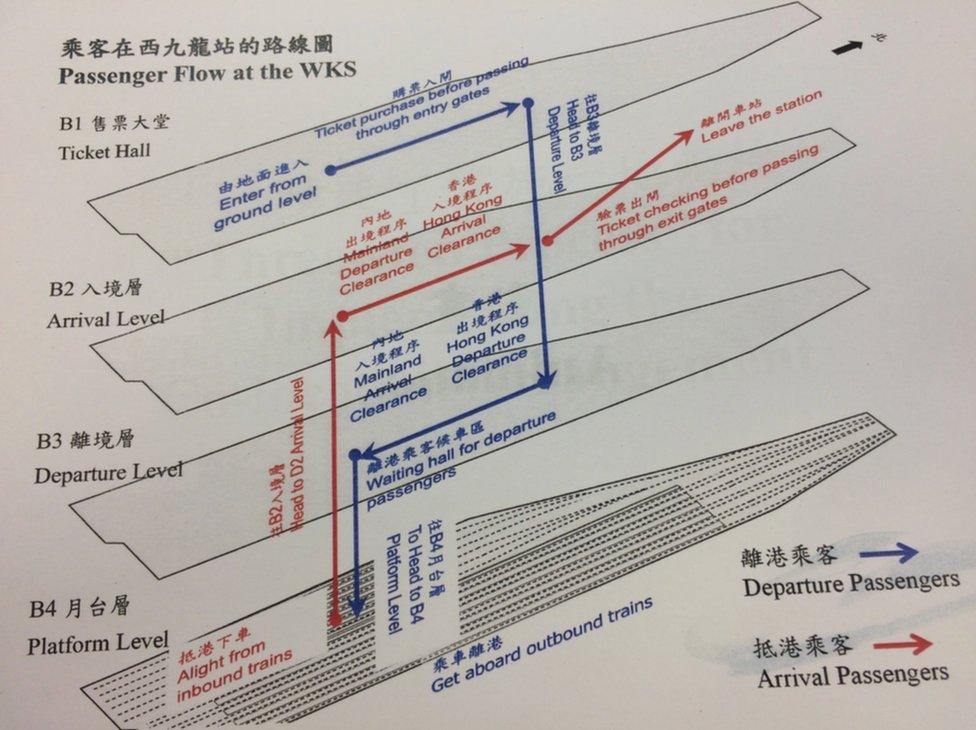
Hong Kong officials say the area will be considered to be outside the territorial boundary of Hong Kong.
There will be immigration, customs, quarantine, administration and police officers stationed in the area.
So why are people worried?
Hong Kong has a separate legal system from mainland China, under the One Country Two Systems framework.
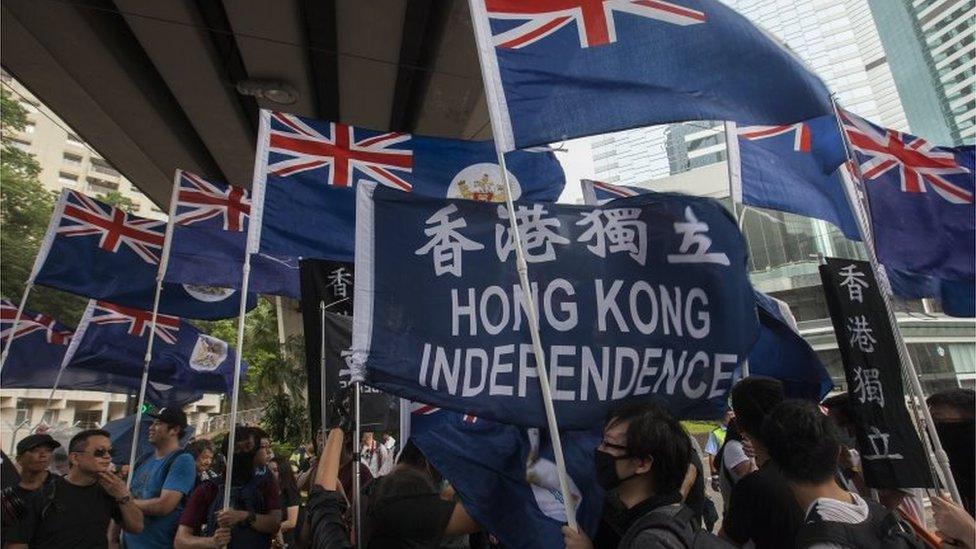
People in favour of greater or total independence for Hong Kong accuse Beijing of meddling in its politics
Under this Basic Law, Hong Kongers have a far greater degree of freedom to protest than mainland citizens have, among other differences.
Mainland officials also have no jurisdiction in the territory.
Critics say the proposal could lead to Hong Kongers being arrested on Hong Kong soil for actions which are legal here, but not in mainland China.
It also feeds in to growing concern in recent years about Chinese encroachment into Hong Kong affairs, after the disappearance from Hong Kong of several people who sold books critical of the Chinese government, and the removal of several MPs who had protested against Beijing while being sworn in.
It is currently unclear whether Western social media sites such as Facebook and Twitter, which are blocked in mainland China, will be accessible within the port area.
The Hong Kong government proposal must be approved by Chinese authorities, before it can be implemented in Hong Kong through a change or addition in local legislation.
Pro-democracy legislators say they will try to veto the plan.
- Published29 June 2017
- Published29 June 2017
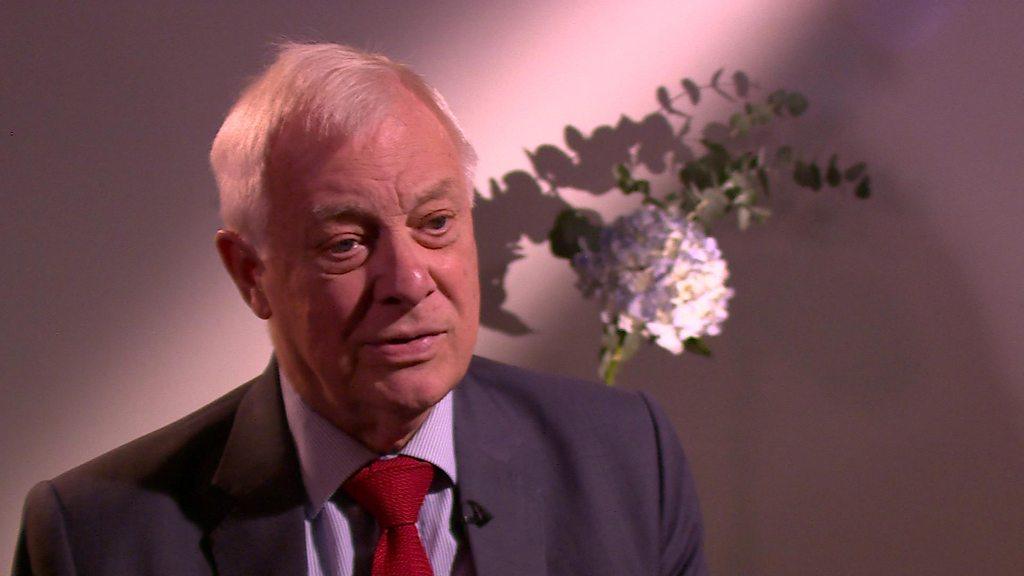
- Published1 July 2017
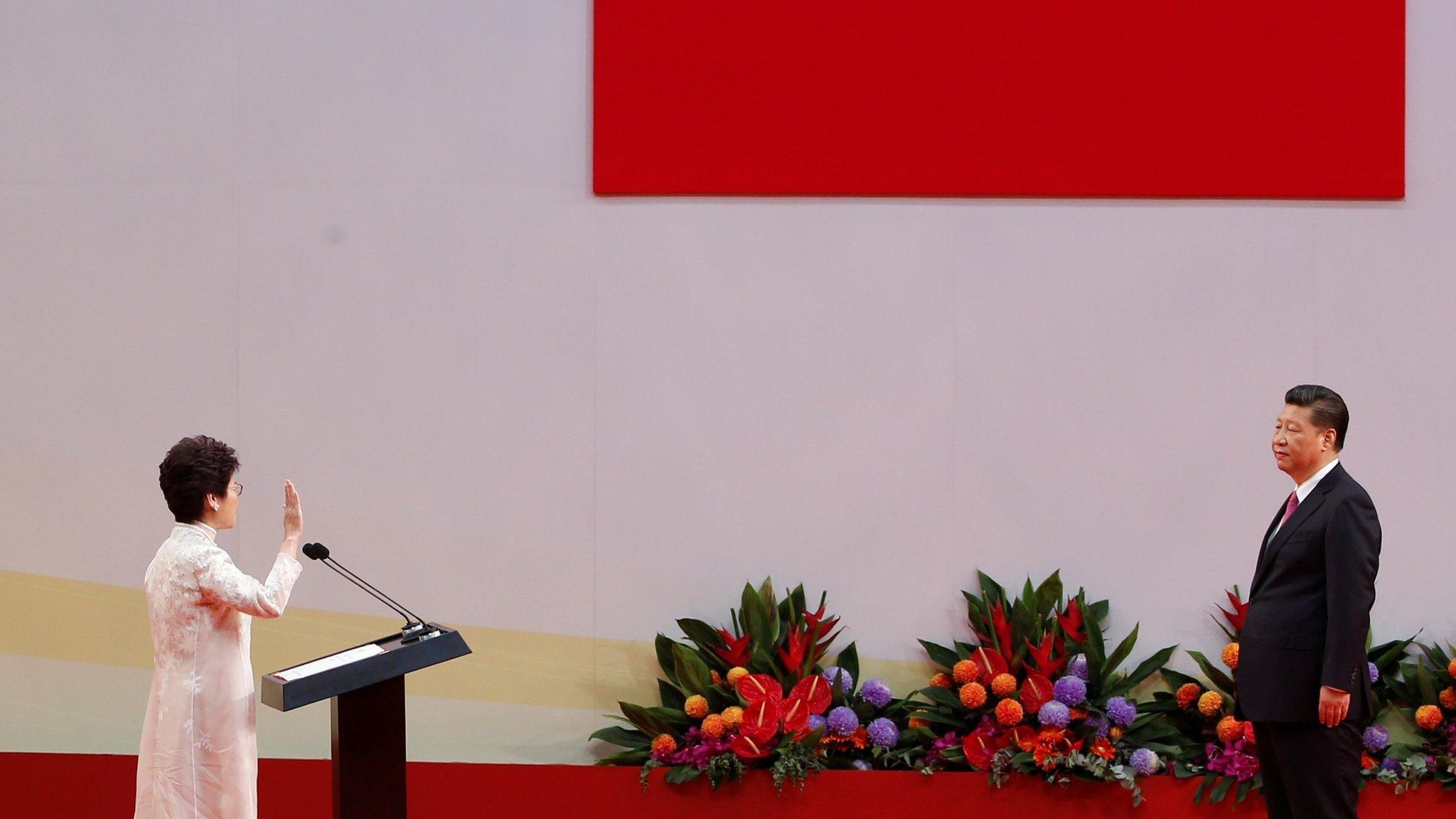
- Published1 July 2022
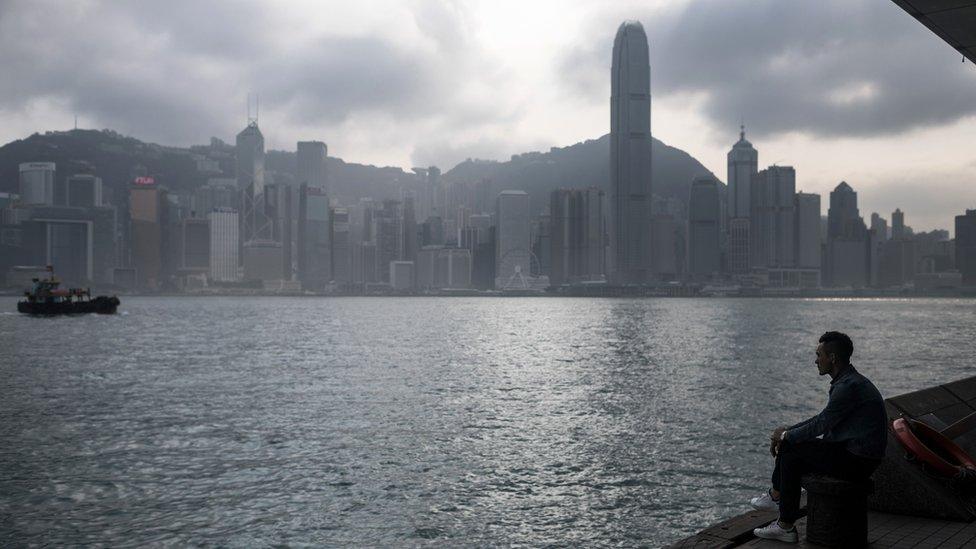
- Published26 June 2017

- Published7 January
